FREE BOOK

This is Chapter Thirty Five from my book, “Cleansing the Temple: A Call to Radical Christianity.” This is a powerful book about purity, prayer, preaching, and persecution.
I’m giving this book away for free to everyone who signs up to receive our email updates. Every once and a while I email out teaching videos, salvation testimonies, encouraging and edifying articles, etc.
Sign up here to receive you free copy:
CLICK HERE TO GET IT
DOES THE BIBLE TEACH OPEN THEISM?
Jesse Morrell
http://www.OpenAirOutreach.com
* God speaks of the future in terms of what may or may not be: Ex. 3:18, 4:9, 13:17; Eze.12:3; Jer. 36:3; 36:7
* God changes His plans in response to changing circumstances: Ex. 32:10-14, Jer. 18:1-10; Jonah 3:10
* God’s willingness to change His plans is considered one of His glorious attributes: Jonah 4:2; Joel 2:12-13
* God tests people to see what types of decisions they will make: Gen. 22:12; Ex. 16:4; Deut. 8:2, 13:1-3; 2 Chron. 32:31
* God has had disappointments and has regretted how things turned out: Gen. 6:5-6; 1 Sam. 15:10, 15:35
* God has expected things to happen that didn’t come to pass: Isa. 5:1-5; Jer. 3:6-7, 3:19-20
* God gets frustrated and grieved when he attempts to bring individuals into alignment with his will and they resist: Eze. 22:29-31; Isa. 63:10; Eph. 4:30; cf. Heb. 3:8, 3:15, 4:7; Acts 7:51
* The prayers of men have changed the plans of God (God changes the future: Ex. 32:10- 14; Num. 11:1-2, 14:12-20, 16:16:20-35; Deut. 9:13-14, 9:18-20, 9:25; 2 Sam. 24:17-25; 1 Kin. 21:27-29; 2 Kin. 20:6; 2 Chron. 12:5-8; Jer. 26:19; Isa. 38:5
* God is said to have repented (changed His mind) multiple times in the Bible: Gen. 6:6-7; Ex. 32:12-14; Num. 23:19; Deut. 32:36; Judges 2:18; 1 Sam. 15:11, 15:29, 15:35; 2Sam. 24:16; Ps. 90:13, 106:45, 110:4, 135:14; Jer. 4:28, 15:6, 18:8, 18:10, 20:16, 26:3, 26:13, 26:19, 42:10, Eze. 24:14, Hos. 11:8, 13:14; Joel 1:13-14; Amos 7:3, 7:6; Jonah 3:9-10, 4:2; Zach. 8:14
* Prophecies are often God foretelling what He Himself will later bring to pass. So they often have to do more with God’s omnipotence to bring about His plans then merely foreseeing the future: Gen. 3:15; 1 Kin. 8:15, 8:20, 8:24, 13:32 (with 2 Kin. 23:1-3, 15-18); 2 Kings 19:25; 2 Chron. 1:9 (1 Chron. 6:4; 10, 15); 2 Chron 36:21-22; Ezra 1:1; Isa. 5:19, 25:1-2, 37:26, 42:9 (with vs. 16); 46:10; Jer. 29:10, 32:24, 32:28, 33:14-15, Lam. 3:37; Eze. 12:25, 17:24, 33:29, 33:33; Dan. 4:33, 4:37; Acts 3:18, 27:32-35; Rev. 17:17. This type of prophecy includes the prophecies of the Messiah. So His birth, the location of His birth, the miracle of His birth, were not accidents or merely foreseen events, but were the deliberate plan of God (Gen. 3:15; Isa. 9:6; 53:6; Acts 2:23, 4:28)
* The future is partly open (undetermined, uncertain): Ex. 3:18, 4:9, 13:17; Eze. 12:3; Gen. 22:12; Ex. 16:4; Deut. 8:2, 13:1-3; Jdg. 2:20-22, Jdg. 3:4, Ex. 33:2, Ex. 34:24; 1 Sam. 2:30, 2 Chron. 12:6-7, 2 Chron. 16:9; 2 Chron. 32:31; Ps. 81:13-14; Isa. 5:1-5; Jer. 3:6-7, 3:19-20; Matt. 24:20; 26:53; Mk. 13:20.
* The future is partly settled (determined, certain): Gen. 3:15; 1 Kin. 8:15, 8:20, 8:24, 13:32 (with 2 Kin. 23:1-3, 15-18); 2 Kings 19:25; 2 Chron. 1:9 (1 Chron. 6:4; 10, 15); 2 Chron 36:21-22; Ezra 1:1; Isa. 5:19, 25:1-2, 37:26, 42:9 (with vs. 16); Jer. 29:10, 32:24, 32:28, 33:14-15, Lam. 3:37; Eze. 12:25, 17:24, 33:29, 33:33; Dan. 4:33, 4:37; Acts 3:18, 27:32-35; Rev. 17:17; Gen. 3:15; Isa. 9:6; 53:6; Acts 2:23, 4:28.
* The future can be changed: Gen. 19:17-22; Ex. 32:10-14, Jer. 18:1-10; Ex. 32:10-14; Num.11:1-2, 14:12-20, 16:20-35; Deut. 9:13-14, 9:18-20, 9:25; 2 Sam. 24:17-25; 1 Kin. 21:27-29; 2 Kin. 20:6; 2 Chron. 12:5-8; Jer. 26:19; Isa. 38:5; Matt. 24:20; Mk. 13:20;
* Scriptures that say God has a past, present, and a future: Jn. 1:14; Rev. 1:4, 1:8, 4:8; 5:12;
* Scriptures that say God’s eternity is endless time, that is, time without beginning or end: Isa. 9:6-7; Isa. 43:10; Isa. 57:15; Job 36:26; Dan. 4:34; Hab. 1:12 Ps. 23:2; Ps. 90:2; Ps. 102:24; Ps. 102:27; Lk. 1:33; Heb 1:12; Rev 1:4; Rev. 1:8; Rev. 4:8; Rev. 5:14;
* Scriptures that say man’s eternity is endless time: Isa. 45:17; Eph. 3:21; Rev. 14:11;
* Scriptures that say eternity is endless time for Heavenly creatures: Rev. 4:8
* Eternity is time without end (endless time instead of timelessness): Isa. 9:6-7; Isa. 43:10; Isa. 57:15; Job 36:26; Dan. 4:34; Hab. 1:12 Ps. 23:2; Ps. 90:2; Ps. 102:24; Ps. 102:27; Lk. 1:33; Heb 1:12; Rev 1:4; Rev. 1:8; Rev. 4:8; Rev. 5:14; Isa. 45:17; Eph. 3:21; Rev. 14:11
A PARTIALLY DETERMINED & PARTIALLY OPEN FUTURE
There are certain things about the future, relating to eschatology, which has already been determined. There are things which God will bring to pass (2 Thes. 2:11; Rev. 17:17), and even things relating to eschatology which Satan has predetermined to do (2 Thes. 2:9). However, there are certain things that seem to be open. For example, Jesus said, “But pray ye that your flight be not in the winter, neither on the sabbath day” (Matt. 24:20). The indication here is that the time of their flight was not yet predetermined, and that prayer would help determine it. God had not yet made up His mind as to whether or not their flight would be in winter or on the Sabbath, and the prayers of the people would help make up His mind and help determine the future. It was determined that they would have a flight, but it was not determined yet when that flight would be. This is a flexible openness within determined boundaries – compatibleness between future determinism and future openness. Another example of how the future is not necessarily eternally or exhaustively fixed is when Jesus said, “And except those days should be shortened, there should no flesh be saved: but for the elect’s sake those days shall be shortened” (Matt. 24:22). I learn from this verse that God can change the future. He can and has shortened the days of the tribulation. God even has the power to add days to your life like he did with Hezekiah or to shorten your days (Isa. 38:5; Prov. 10:27). These are just some examples of how the Scriptures often assume an open perspective on the future. See also Exodus 32:10-14; Jer. 18:7-10; Matt. 26:53.
Jesus said, “And by chance there came down a certain priest that way: and when he saw him, he passed by on the other side.” Lk. 10:31. The Greek word Jesus used for chance means “accident” (Strongs & Thayer’s). This is contrary to the micro-manger system that Calvin believed God set up. John Calvin said, “Nothing happens by chance.” (The Institutes of Christian Religion, Book I, Ch. 16, Sect. 4).
THE FUTURE CAN BE CHANGED
This is abundantly seen in the Old Testament. 1. God was once planning on destroying Israel and making a great nation out of Moses. He repented of this and consequently altered the future (Ex. 32:10, 14). 2. God was once going to establish the throne of Saul forever but the Lord repented of this and replaced Saul with David, thus altering the course of history (1 Sam. 13:13; 15:11, 28, 35). 3. God was once planning on destroying Nineveh in forty days but when He saw how they repented of their sins, the Lord repented of His prophecy about the future (Jonah 3:10). 4. God prophesied through Isaiah that Hezekiah would die and not recover from sickness but Hezekiah prayed, God repented and added fifteen years to his life, thus changing the future (Isaiah 38:1-5). God is so Sovereign that He can increase or decrease the number of your days, thus changing your future for the better or worse (Prov. 10:27).
This doctrine of the flexibility and changeability of the future, as opposed to a fatalistic or immutable view of the course of history, is also taught in the New Testament. New Testament examples of how the future can be changed is 1. Jesus said he could pray for twelve legions of angels to deliver him from the cross, despite all the Messianic prophecies, if he so chose (Matt. 26:53). 2. Jesus said to pray that your flight not be in winter, implying that the future was not settled on this point yet and that our prayers could help in settling it (Matt. 24:20; Mk. 13:18). 3. Jesus said for the sake of the elect those days were shortened, which means the future was in fact changed (Matt. 24:20).
Here is a simple question: Can God change the future? If not, then He is not all powerful and cannot be God. If yes, then the future has openness or alternative possibilities.
A STUDY ON THE WORD FOREKNEW AND FOREKNOW
The word translated as “foreknew” (Rom. 11:2) or “foreknow” (rom. 8:29) is the word “proginōskō”. However, it is falsely assumed that this word necessarily implies that this knowledge is eternal and exhaustive, thus creating the doctrine of eternal and exhaustive foreknowledge. This, however, cannot be the case as Paul uses the same word to apply to the knowledge of men (Acts 26:5). In fact, the Apostle Peter also used this same word to describe the knowledge of men (2 Pet. 3:17).
Peter uses the word to say that the believers knew a specific truth before, thus they foreknew it. Paul uses the word to say that Israel knew him before. This use of the word is not describing a foreknowledge of the future, but a knowledge of someone in the past. There were Israelites who knew Paul before he was arrested, thus they foreknew him. That is how Paul used the word in Acts 26:5, and that also seems to be how Paul used it in Romans. 8:29 and 11:2. The word is not being used to describe a foreknowledge of a future event, but the knowledge God had of Israel and of Old Testament Saints before the New Testament. God knew Israel and Old Testament Saints before the New Testament, thus He foreknew them.
GOD CHANGES HIS MIND, NOT HIS CHARACTER
In Jer. 18:7-10 when the Bible says that God will repent, this is not God changing His character but God changing His plans in light of new circumstances, and by changing His plans He is acting according to His never changing His character. So when God repents (changes His mind) this is God changing His plans, not changing His character, and changing His plans in these situations is due to God’s never changing character. God’s character never changes, as He is the same yesterday, today, and forever.
However, for God to actually repent or change His plans, then He was at first planning something else. If God was not really planning on doing something else, then He didn’t really repent at all, thus explicit statements of Scripture would be false. And if God was planning to do something else but then He repented or changed His plans, then the future is open and changeable and not eternally fixed, settled, or foreknown as a certainty.
ADVANTAGE AND SUPERIORITY OF OPEN THEISM OVER CLOSED THEISM
Suppose that God is in time and is observing events occur as they occur and His foreknowledge of the future consists of possibilities that may or may not be. And God is watching you drive at a certain speed down a road that He knows has a blind turn. And He sees another driving on the same road come the opposite direction at a certain speed. And God knows this man’s driving abilities and practices from the past and knows that he always passes over the dividing line on turns. So God is able to foreknow that you are going to get into a car accident with that man based upon His present knowledge that you are both on the same road heading opposite directions, driving at a certain speed each so that you will both take the turn at the same time, and His knowledge of this man’s driving abilities given His observation of His past practices.
Given all of the present circumstances, God can foreknow with certainty that you are going to get into a car accident. However, this certain foreknown future event is contingent upon the current circumstances. If the circumstances change, the future outcome would change. God knows that the event will only be certain if the current circumstances remain the same. The event is really only a possibility or a contingency, not an actuality or a certainty, as God is able to intervene and change the circumstances to prevent what He foresees coming.
So before the accident occurs, God intervenes and gives the other man a flat tire. The man pulls over before taking the blind turn. You take the turn and see the man on the side of the road with a flat tire and think nothing of it, not knowing that God just intervened to save you from death – thus changing the future.
Or, as God governs free moral beings through motives, God could prevent the accident by giving the man thoughts of food, appealing to his hungry stomach, so that the man pulls over at a gas station or a restaurant before the blind turn. Thus God again changes the future from what He foresaw it to be, since what He foresaw was a contingency or a possibility, or only a certainty given the current circumstances, so that God was free to intervene and prevent it.
On the other hand, suppose God simply foreknew from eternity that you were going to get into a car accident with that man on the blind turn. God’s foreknowledge of the event is eternal and certain, so it cannot be otherwise. God’s eternal foreknowledge cannot be wrong. God knows that it will happen. Not even God can prevent it as God cannot change the future to be other than what He has eternally and certainly foreknown it to be.
That is why a foreknowledge of possibilities is what liberates God to make plans, change plans, determine the future, and change the future. Whereas an eternal foreknowledge of certainties would take the course of history and the future completely out of His hands. If all things are eternally foreknown as certain by His mind, then nothing could be determined by His will, as all things are already eternally settled. God, from eternity, has watched the movie of human history as if it were already completed and He is therefore the mere passive audience and not the dynamic director who is on the set orchestrating it and directing it to bring to pass what He wills.
The only third alternative is that God foreknows all future events with certainty because God has predetermined all future events. In which case God foreknows that you will be in a car accident tomorrow and die because God has predetermined that you should. In which case, there is nothing that you or anyone else can do to prevent your car accident and death.”
But to many of us this idea of God foreknowing all things with certainty because He has predetermined all things is unthinkable and blasphemous as it makes God the author of sin. God could have prevented all sin but He chose not to. In this case, God prefers sin over holiness in every instance that it actually occurs. And we see God in the Bible making plans in time and even altering and changing those plans at time, thus we learn from the Bible that God has not predetermined all things from eternity.
The real debate between Calvinists and Open Theists is not so much over the knowledge of God, as both agree that God knows reality perfectly, but over the nature of the reality in which God knows. If the future is predetermine, God foreknows it as certain. If the future has open possibilities given the free will of God, men, and angels, then God foreknows the future as contingent. If the future has some predeterminations and some openness, then God knows the future as having both contingencies and certainties. God knows the certainties as certainties and the contingencies as contingencies. Whatever the nature of reality is, the omniscient mind of God perfectly corresponds to it. A contradiction would exist to say that God eternally foreknows with certainty the outcome of a future contingency, for then God’s mind does not correspond to the nature of reality since He knows a contingency as a certainty.
The Open Theist is consistent in saying that God foreknows contingencies as possibilities, and the Calvinist is consistent in saying that God foreknows predeterminations as certainties, but the classical Arminian is inconsistent in saying that God eternally foreknows with certainty the future outcome of a contingency. The Classical Arminian says God foreknows contingent future events as certainties, though they are free will choices which may or may not be, and yet they are not predetermined as certain by God. The Classical Arminian would be in the dilemma of God foreknowing that which He cannot change, as He eternally foreknows all things but has not predetermined all things. God’s eternal foreknowledge cannot be wrong, so what He foreknows as certain will happen and cannot be otherwise, and yet these events are not caused or determined by God originally.
CHARTS ILLUSTRATING OPEN THEISM



CHECK OUR THE BIBLICAL TRUTH RESOURCES BOOKSTORE: Click Here
FREE BOOK

This is Chapter Thirty Five from my book, “Cleansing the Temple: A Call to Radical Christianity.” This is a powerful book about purity, prayer, preaching, and persecution.
I’m giving this book away for free to everyone who signs up to receive our email updates. Every once and a while I email out teaching videos, salvation testimonies, encouraging and edifying articles, etc.
Sign up here to receive you free copy:




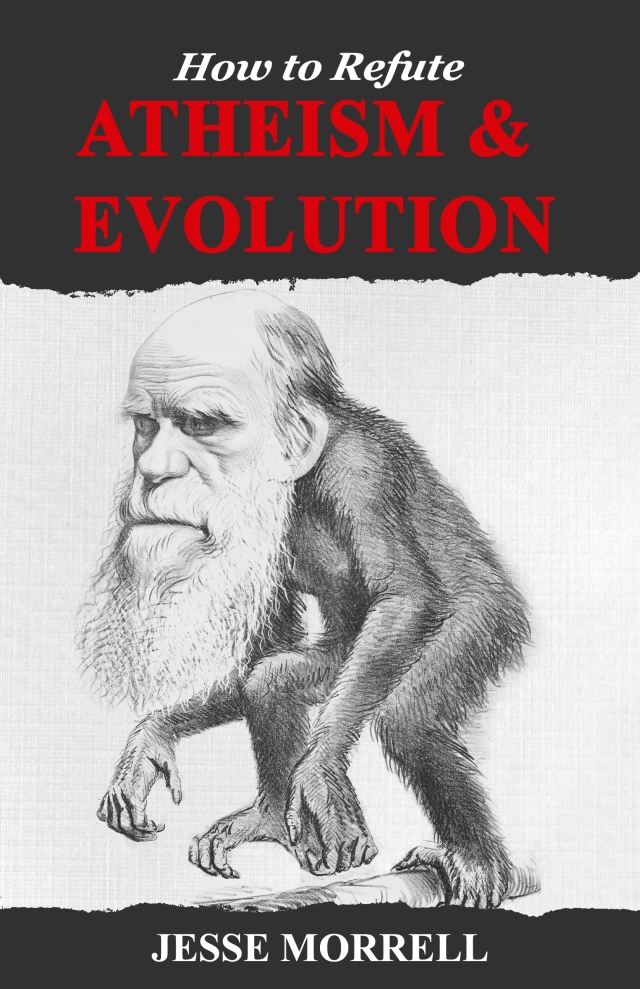

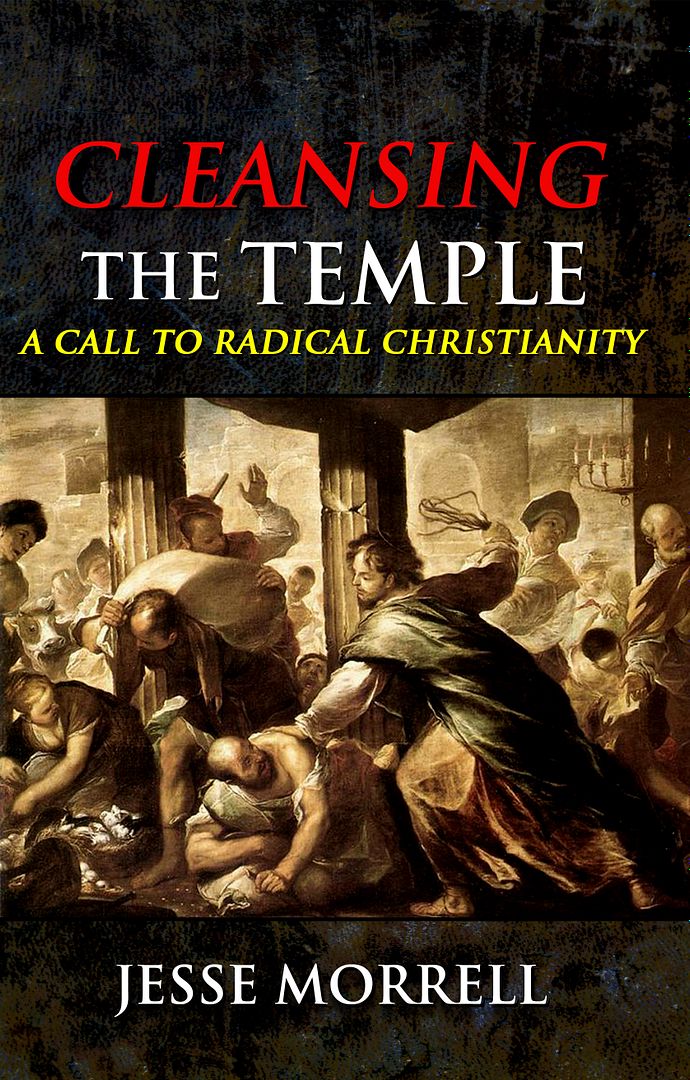
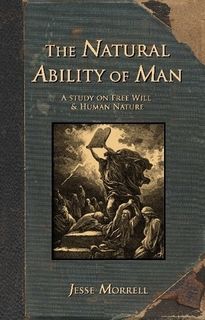
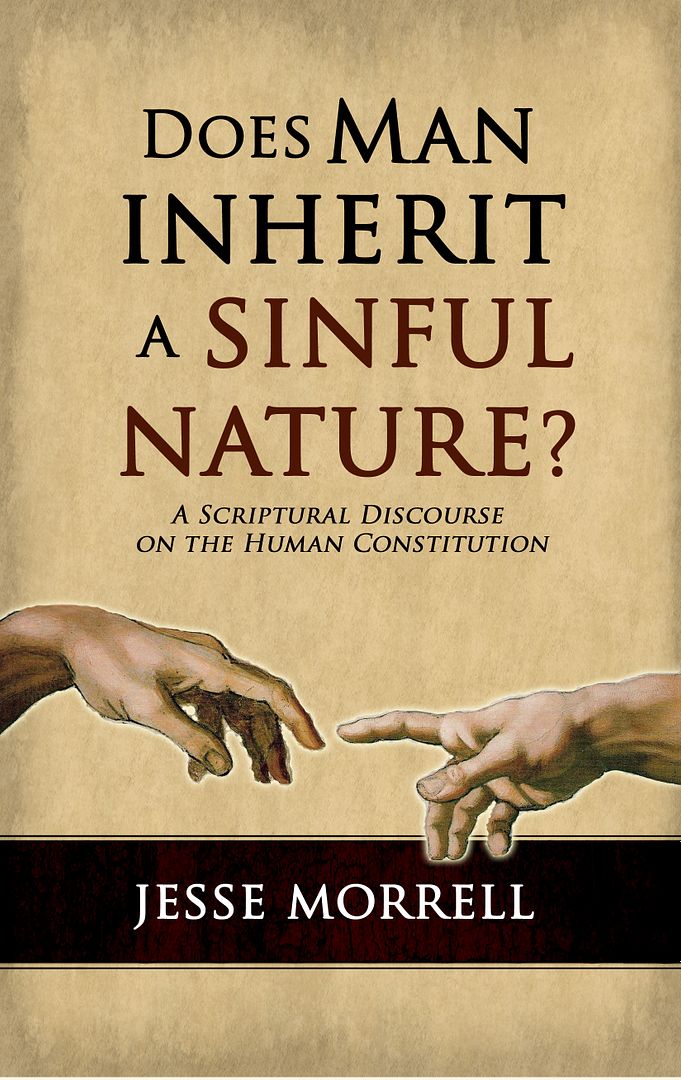
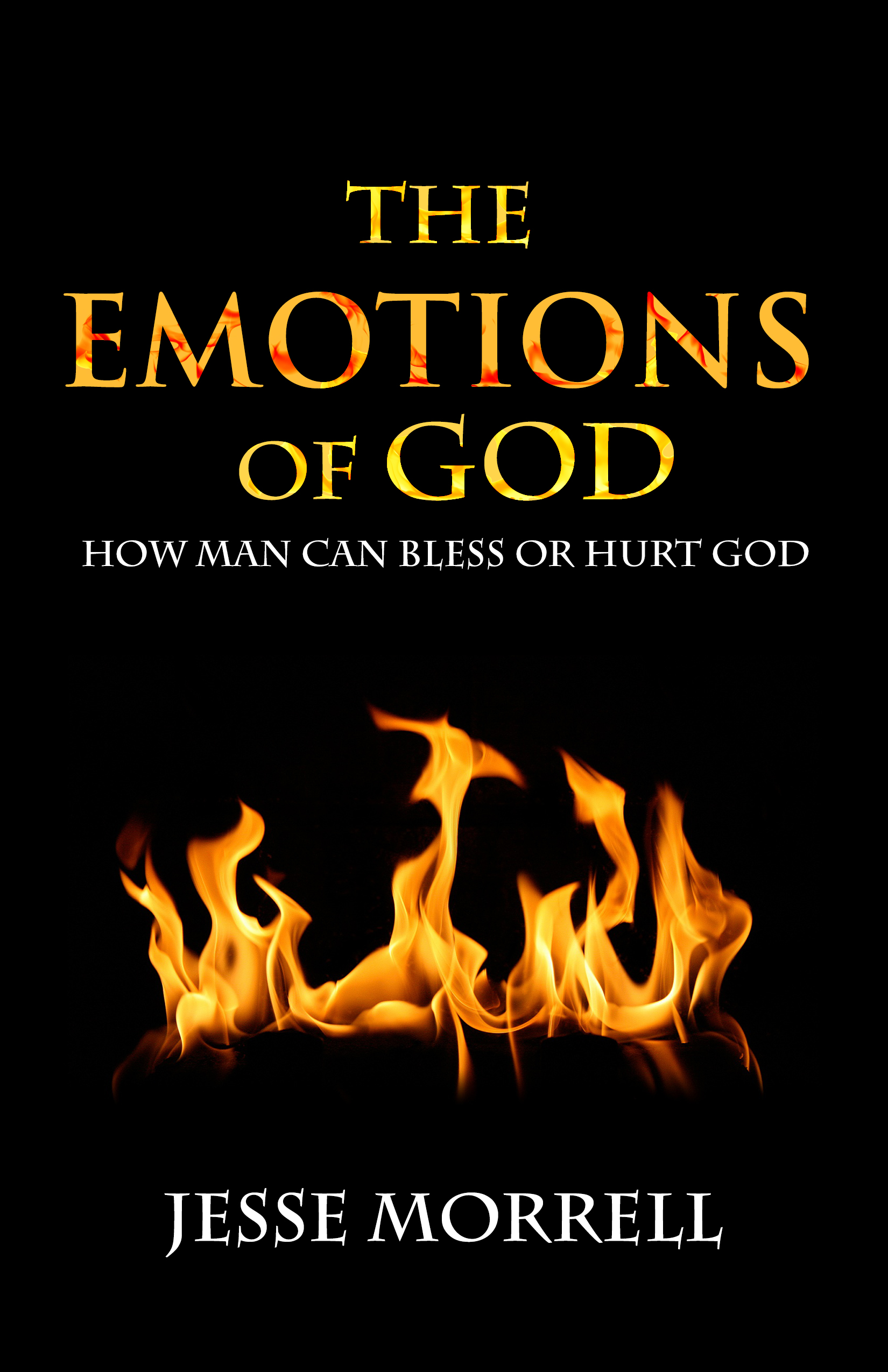
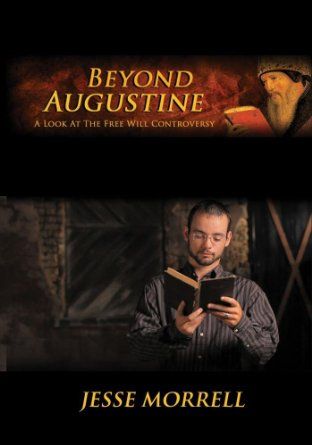






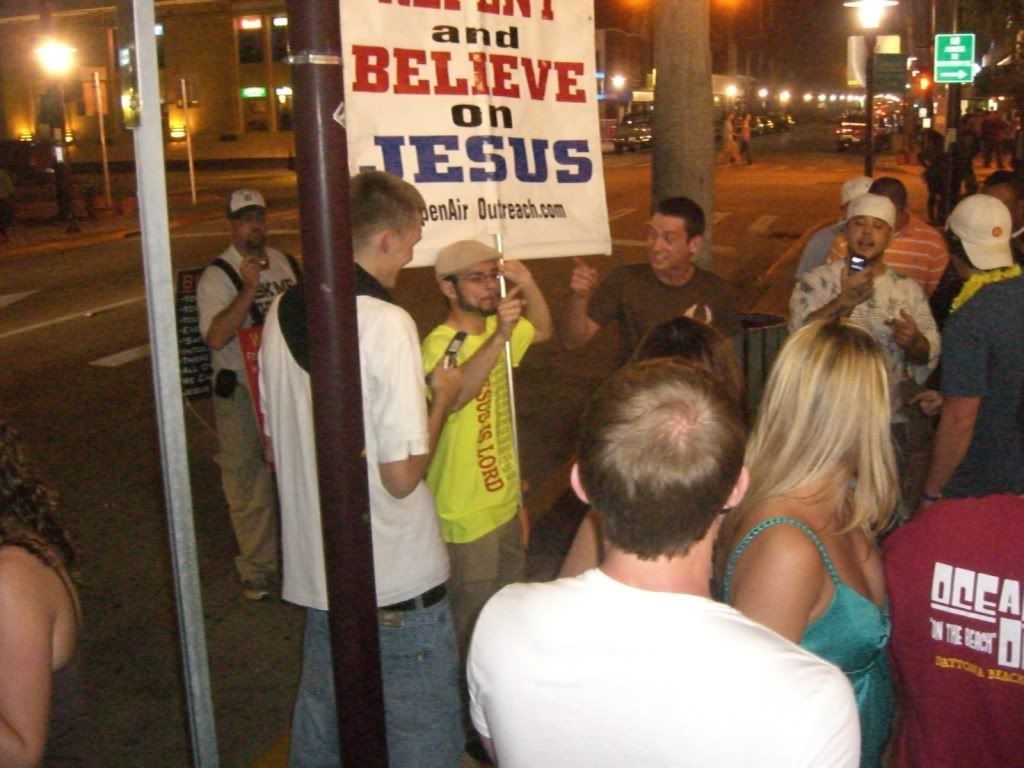


The Open Theist, contrary to what is commonly assumed by his opponents, does believe in God’s exhaustive foreknowledge of the future. The knowledge of God is not the real issue, but the nature of the future is. God is an infinite being and consequently His mind is omniscient. That means that all objects of knowledge are necessarily known by Him and cannot be otherwise. His omniscient mind necessarily corresponds to the nature of reality. If the future consists exclusively of certainties and necessities, God would know it as such. But if the future consists exclusively of possibilities or contingencies, God would know it as such. But if the future has contingencies, certainties, and necessities, God would know it as such. If the future is nothing more than certainties and contingencies, and God does not know this, then God would not be omniscient. But if the future has contingencies and possibilities which may or may not occur, if God does not know this, then God is not omniscient.
The Open Theist is accused of denying the omniscience and foreknowledge of God by the Closed Theist because the Open Theist says that the future is not exhaustively settled and therefore God does not know it as exhaustively settled. But this is no more a denial of God’s foreknowledge than if the Open Theist accused the Closed Theist of denying God’s foreknowledge and omniscience because the Closed Theist denies that God knows some events are contingencies that may or may not occur. Both the Open Theist and the Closed Theist, in reality, believe in the omniscience and foreknowledge of God. Their disagreement is on the nature of the future that God foreknows exhaustively. The one says that the future is exhaustively certainties and therefore God foreknows the future exhaustively as certainties, while the other says that the future has some necessities, some certainties, and some contingencies, and therefore God foreknows the future exhaustively as consisting of necessities, certainties, and contingencies.
When God said in the Scriptures “neither came it into my mind that they would do such a thing,” He was not denying that He foreknew that they were capable of such an action, but only denying that He foreknew such an action as a certainty that would happen. In other words, God is able to experience surprise and disappointment as the Scriptures represent Him as doing, because His foreknowledge of the future corresponds to the nature of the future and therefore consists in possibilities that may or may not happen and not exclusively in certainties that absolutely will happen.
The conclusion that God eternally foreknows the future as certainties and does not foreknow the future as consistent in alternative possibilities is made given the premise of:
1) Eternal Now – the philosophical concept that God is outside of time and experiences past, present, and future simultaneously in an eternal moment. God eternally foreknows the future as absolute certainties because God has already experienced the future, or is experiencing the future in an eternal moment. The future is a certainty and has no alternative possibilities as the future cannot be otherwise than what God has eternally experienced it to be.
2) Eternal and Exhaustive Decrees of All Things – the Calvinistic notion that God has predetermined all future events. God eternally foreknows the future as absolute certainties, or really necessities, because God has already predetermined what the future will be. The future is a certainty and has no alternative possibilities as the future cannot be otherwise than what God has eternally decreed it to be.
If these two premises are assumed, it cannot be rationally denied that God has eternal foreknowledge of the future as certainties or necessities. But if it is affirmed that God experiences duration, without beginning and without end, and that God and man have freedom of will to choose between alternative courses or various paths, it cannot be rationally denied that God foreknows the future as containing alternative possibilities which may or may not happen depending on what God and man chooses at the time.
It is illogical to say that the future has alternative possibilities because God and man have freedom of will, yet God eternally foreknows the future exhaustively as certainties. In reality, this is a denial of God’s omniscience as it denies that God knows reality as it really is. If the future has possibilities given free will, God must know it as such or else He is not omniscient. If God thinks that the future consists exhaustively of certainties, when in fact it contains alternative possibilities, then God is not omniscient as His mind does not correspond to the nature of reality.
God’s mind corresponds to the nature of reality and His knowledge of the future only changes in correspondence to changes in the nature of reality. What God foreknows as a possibility is foreknown as a possibility as long as that event remains a possibility only. Once the event is chosen to occur, or actually does occur, then such an event has become a certainty and consequently God now knows it as a certainty. Thus, the past was made by free will choices which necessarily means that they were possibilities at the time, but now that they are past, God knows the past as a certainty because it already happened. Some events are certainties, given the current circumstances and choices, but are still possibilities in that they are avoidable if the current circumstances and choices change. In this cases, God knows the event as a certainty, given the current circumstances and choices, but also foreknows that the event is an avoidable possibility if the current circumstances and choices change.
I once discussed this issue with a friend of mine, who is a Closed Theist, who said that God foreknows our future free will choices as certainties just like God knows our past free will choices as certainties. He said if God’s knowledge of our past free will choices as certainties does not interfere with our freedom, then God’s knowledge of our future free will choices as certainties does not contradict our freedom either. However, the fallacy of this thinking is evident when we consider that the past is known as a certainty because it has already occurred, while the future has possibilities that have not yet been chosen between, so God can know our past free will choices as certainties but necessarily knows our future free will choices as possibilities.
When God said to Abraham, “now I know that thou fearest me,” this was in reference to Abraham offering up his precious son upon the alter. Certainly God foreknew that this was a possibility as Abraham was created with a free will and was therefore capable of such an action, but God said, “now I know” because that is when such a possibility became an actuality. God knew it as a certainty when it became a certainty and not before. Before it was a certainty it was only a possibility, and God therefore knew it as a possibility for as long as it was a possibility only.
“Arise, go unto Nineveh, that great city, and preach unto it the preaching that I bid thee.
So Jonah arose, and went unto Nineveh, according to the word of the LORD. Now Nineveh was an exceeding great city of three days’ journey. And Jonah began to enter into the city a day’s journey, and he cried, and said, Yet forty days, and Nineveh shall be overthrown.” Jonah 3:2-4
“Who can tell if God will turn and repent, and turn away from his fierce anger, that we perish not? And God saw their works, that they turned from their evil way; and God repented of the evil, that he had said that he would do unto them; and he did it not.” Jonah 3:9-10
“And he prayed unto the LORD, and said, I pray thee, O LORD, was not this my saying, when I was yet in my country? Therefore I fled before unto Tarshish: for I knew that thou art a gracious God, and merciful, slow to anger, and of great kindness, and repentest thee of the evil.” Jonah 4:2
A few things to notice about these passages:
1. It says that Jonah went and preached what God told him to preach. He preached that in forty days they would be overthrown. There were no if, ands, or buts about it. It was not a “turn or burn” message, but simply, “your gonna burn.”
2. Nineveh repented of their sins in the hopes that God would repent and turn from His wrath. They had no promise that He would. God did not tell them to turn or burn. They repented in the hopes that God might repent of His plans.
3. God saw their repentance, as a new observation or new consideration, and in light of it He repented or changed His mind about destroying them. God decided to change their future from being destroyed in forty days. His prophecy of destruction in forty days was therefore cancelled, as it says that God did not do what “he had said that he would do.”
4. Jonah said that the reason he did not want to go to Nineveh in the first place was because He knew God was a merciful God who was willing to repent of the evil that He plans for people. Jonah did not want to go because He knew God was willing to change His mind and could therefore alter the course of the future.
A simple question, if God declares something that He knows is not true, is that a lie? If God knew all along that Nineveh would not be overthrown, did He not lie to them when He said that they would be? You might say He did it to bring about their repentance. So God lied to them to manipulate a response?
God promises in Jeremiah 18:7-10 that He would repent if He ever sees good reasons for doing so. Certainly, God will keep His promise.To say that God will never repent, or never has repented, is to say that God either never saw any good reasons for doing so, or because God does not keep His promise. As was the case with Nineveh, Saul, Hezekiah, etc, God has at times seen good reasons to change His mind, which is keeping with His promise and character.
Tell Calvinists, “If God cannot change His mind or change the future, then God is not Sovereign.” … That will irritate them, for stealing their favorite word and using it against them, but it gets the point across.
Praise the Lord that He repents and is so merciful that He is even willing to change, cancel, or even reverse some of his own prophecies!
Its sad that so many people have preconcieved ideas of what an infinite, eternal, perfect God is like, that beacuse of their faulty human reasoning they deny this glorious truth of Scripture that God repents!
Gen_6:6 And it repented the LORD that he had made man on the earth, and it grieved him at his heart.
Exo_32:14 And the LORD repented of the evil which he thought to do unto his people.
Jdg_2:18 And when the LORD raised them up judges, then the LORD was with the judge, and delivered them out of the hand of their enemies all the days of the judge: for it repented the LORD because of their groanings by reason of them that oppressed them and vexed them.
1Sa_15:35 And Samuel came no more to see Saul until the day of his death: nevertheless Samuel mourned for Saul: and the LORD repented that he had made Saul king over Israel.
1Ch_21:15 And God sent an angel unto Jerusalem to destroy it: and as he was destroying, the LORD beheld, and he repented him of the evil, and said to the angel that destroyed, It is enough, stay now thine hand. And the angel of the LORD stood by the threshingfloor of Ornan the Jebusite.
Jer_26:19 Did Hezekiah king of Judah and all Judah put him at all to death? did he not fear the LORD, and besought the LORD, and the LORD repented him of the evil which he had pronounced against them? Thus might we procure great evil against our souls.
Amo_7:3 The LORD repented for this: It shall not be, saith the LORD.
Amo_7:6 The LORD repented for this: This also shall not be, saith the Lord GOD.
Jon_3:10 And God saw their works, that they turned from their evil way; and God repented of the evil, that he had said that he would do unto them; and he did it not.
Joe_2:13 And rend your heart, and not your garments, and turn unto the LORD your God: for he is gracious and merciful, slow to anger, and of great kindness, and repenteth him of the evil.
Shall not the Judge of all the earth do right? Amen, Jesse. Calvinism is an attack on the very character of God.
Calvinist: Does God foreknow all future events as certainties?
Open Theist: No
Calvinist: So you deny that God has perfect foreknowledge and deny that God is omniscient!
Open Theist: No, God does not foreknow all future events as certainties because not all future events are certainties. Some future events are possibilities and so God foreknows them as such.
Open Theist: Does God foreknow that the future has open possibilities?
Calvinist: No!
Open Theist: So do you deny that God has perfect foreknowledge and deny that God is omniscient?
Calvinists: No, God does not foreknow that the future has open possibilities because the future does not have open possibilities. He has predestined it all.
And so you can see that both the Open Theist and the Calvinist agree that God has perfect knowledge of reality – that He knows the future as it is. The disagreement is over the nature of the future. What is the future that God foreknows? That is the real debate. Are all future events predestined and settled or are there future events that God has left open and are there alternative possibilities that can be chosen between? That is the real debate.